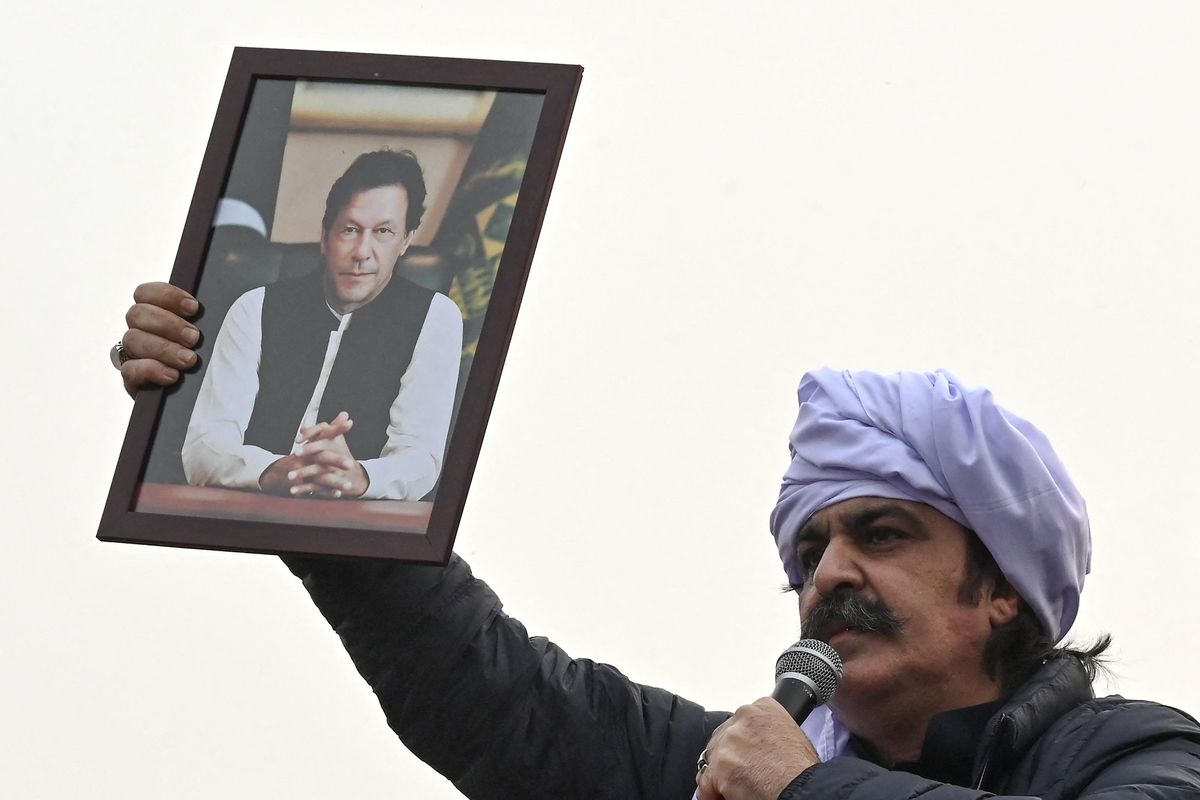Khan-led PTI's anti-corruption efforts in Pakistan's KP: Reform or repeat of past failures?
PTI plans a new anti-corruption law for province, but critics say past failures cast doubt on its effectiveness

Kamran Ali
Correspondent Nukta
Kamran Ali, a seasoned journalist from Khyber Pakhtunkhwa, Pakistan, has a decade of experience covering terrorism, human rights, politics, economy, climate change, culture, and sports. With an MS in Media Studies, he has worked across print, radio, TV, and digital media, producing investigative reports and co-hosting shows that highlight critical issues.

Despite its long-standing pledge to eradicate corruption, former prime minister Imran Khan’s Pakistan Tehreek-e-Insaf (PTI) has yet to pass any major anti-corruption legislation during its third consecutive term in Khyber Pakhtunkhwa (KP).
Facing mounting criticism, the KP government is now preparing a new law to overhaul the existing accountability framework.
Overhauling the anti-corruption system
According to the Chief Minister's Secretariat, the KP government, under CM Ali Amin Gandapur, is drafting a new Anti-Corruption Force Act to replace the existing Anti-Corruption Establishment (ACE). Officials say the proposed law aims to strengthen transparency and improve governance.
“To enhance transparency and accountability, the chief minister has directed officials to finalize the draft as soon as possible,” the secretariat stated.
The proposed Anti-Corruption Force will be staffed by experts recruited through the Public Service Commission, marking a shift from the current Anti-Corruption Establishment (ACE), which critics argue lacks the expertise to handle complex white-collar crimes.
“The new force will comprise professionals with expertise in relevant fields, ensuring that corruption cases are built on strong legal foundations,” an ACE official said.
Conviction rate below 2%
Despite claims of progress, data from ACE paints a bleak picture. In 2024, ACE recovered more than 2.5 billion rupees and registered 43 First Information Reports (FIRs) against 186 individuals, resulting in 92 arrests. However, the conviction rate remains below 2%.
ACE received 1,352 new corruption complaints in 2024, adding to a backlog of 2,498 cases. By year-end, 2,077 inquiries and 2,470 complaints remained unresolved, raising concerns about the body's effectiveness.
Most complaints were dismissed due to lack of merit, jurisdictional issues, or voluntary restitution, but critics argue this indicates the body’s inefficiency rather than a lack of corruption cases.
Legal loopholes and systemic challenges
Musaddiq Abbasi, special assistant to CM KP on anti-corruption, acknowledged systemic flaws, particularly outdated laws and lack of specialized investigators.
“The existing anti-corruption law dates back to 1961 and doesn’t even define key concepts like unexplained wealth,” Abbasi told Nukta. “It is impossible to fight corruption in 2025 with a law from 1961.”
He also pointed out bureaucratic hurdles that hamper investigations. Under current regulations, ACE cannot initiate inquiries against officials above grade 17 without approval from the chief secretary.
“Why would a bureaucrat allow an inquiry against another bureaucrat?” Abbasi questioned, calling it a clear conflict of interest.
Ehtisab Commission: A failed experiment
This is not the PTI’s first attempt at anti-corruption reforms in KP. In 2013, the party introduced the KP Ehtisab Commission Act, replacing the 1961 ordinance. However, the commission was dissolved in 2018 after spending over PKR 1.03 billion without recovering any funds.
“The law contradicted the National Accountability Ordinance, and PTI feared it could be used against them if they lost power,” said senior journalist Lehaz Ali.
The commission was eventually repealed, and KP reverted to the outdated Anti-Corruption Establishment Ordinance of 1961, leaving the province without an effective accountability system.
PTI’s own efforts
During its current tenure, the PTI has also formed an Internal Accountability Committee to oversee governance in KP. This three-member body has the authority to summon ministers and provincial assembly members over corruption complaints but lacks legal standing.
“We have initiated inquiries into four departments, but we can’t take action,” said committee member Advocate Qazi Anwar. “We will submit recommendations to Imran Khan and the KP government.”
The committee advised the removal of former minister Shakeel Khan over corruption allegations. However, no assets or funds have been recovered, leading to speculation that his dismissal was politically motivated.
Critics question PTI’s intentions
Lehaz Ali argues that despite PTI’s reform claims, the party has mirrored traditional political forces like the Pakistan Muslim League-Nawaz (PML-N) and Pakistan Peoples Party (PPP).
“PTI, like other parties, uses accountability as a political tool rather than for genuine reform,” he said.
Ali Akbar, another senior journalist, pointed out that despite passing the KP Prevention of Conflict of Interest Act, PTI has failed to implement it.
“PTI includes electable figures who might be involved in corruption. The party fears political backlash if action is taken against them,” Akbar explained.
He also cited corruption allegations in projects like the Bus Rapid Transit (BRT), Billion Tree Tsunami, and Sehat Card, where no effective investigations have been conducted.
New anti-corruption law: Real change or another promise?
Abbasi insists the new law will introduce 22 categories of corruption, including provisions for investigating unexplained wealth.
“The goal is to increase the conviction rate from the current 1%-2% to 80%,” he claimed. “We aim to boost direct recoveries from PKR 100 million to PKR 500 million and indirect recoveries to PKR 5 billion.”
CM Gandapur reiterated PTI’s commitment to accountability.
“The restructuring of ACE and the creation of a dedicated authority will ensure a zero-tolerance policy against corruption,” he concluded.







Comments
See what people are discussing